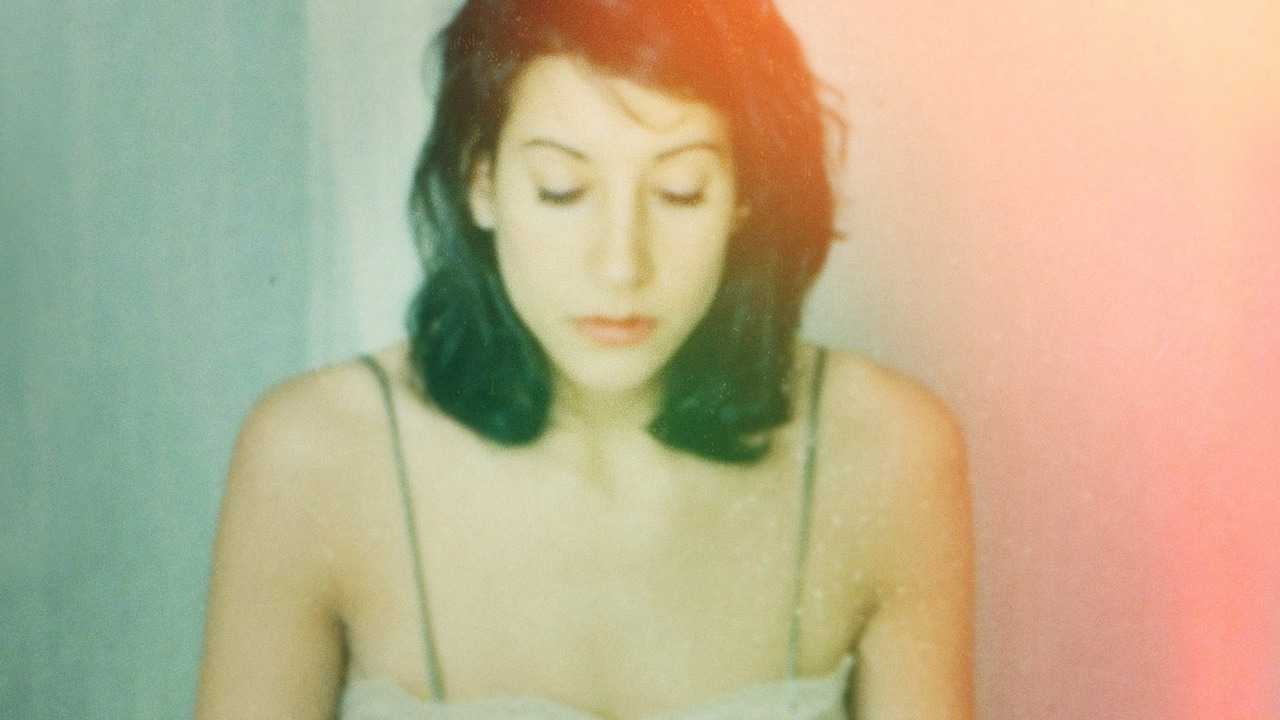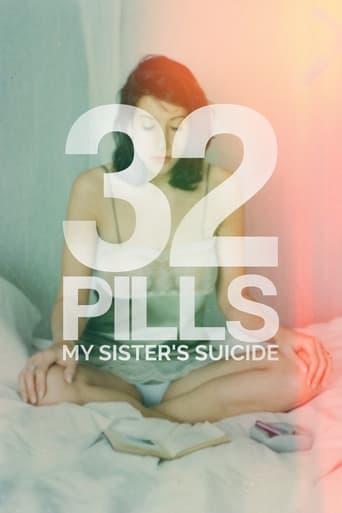

I sat in disbelief watching this well done and edited version of a tragedy that befalls so many people. I was also disturbed by what I feel was something that could have been helped. The following is going to sound to some as a hick like "Pull yourself up by your own bootstraps" lecture, but it would have been better than dying at 42.I live in a small town in Washington State. Is it the big city, the east coast, or WHAT, that assumes that for every perceived ailment you have you - that you must take pills? Was I alone in seeing that her usage increased in what I thought was a good idea in putting the pill containers by year on the 12 foot long - barely able to hold them all - tables? Even the first year would be 5 times more pills than anyone other than an organ recipient would need. Do these people not know that they are the product of millions of years of evolution and that synthetic pill garbage, let alone the mixing of them would cause ANYONE to go psychotic let alone a gorgeous woman with everything to live for. And what does her sister say - "None of these worked" As if to say if she had only found the right medicine. Where is the common sense What doctors would allow this?. I think it went out with anyone there using shampoo. Not meaning to be cruel here but I heard nothing about all the good things these two reasonably intelligent and yes abused mentally by a drunk father and mother incapable of the strength needed to raise a proud defiant child. Sad story. As a teacher I constantly tell my class how GOOD they have it compared to so many, and that they need to appreciate the time and place in which they live Ruth killed herself and will never live again.. I heard NOTHING even remote to this line of thinking here. Was that on purpose or totally not perceived or irrelevant? The lesson here is appreciate the good things, quit with the medication, and maybe get a job or hobby too.
... View MoreThe loss of a life--of any life--is so horrible. But Ruth's life and death were true tragedies. It was interesting to have this sort of voyeuristic view of Ruth's life. But, overall, I felt like the poetic complicatedness of her life and subsequent death were vastly overshadowed by her sister Hope.What struck me as incredibly unfortunate was the upbringing that Ruth and Hope both survived (though barely). No amount of money can save a young child from the burdens of their parents--and what a horrible situation both of these women were stuck in at such a young age. The filming was excellent; the original music by T. Griffin superb. But I wish that the main idea of the film hadn't been stepped on by Hope. She seemed to be the primary focus of every scene, and the combination of Ruth's complicated story as well as Hope's current struggles made a muddy display of this film. And for what it's worth: it's obvious that Hope struggles with addiction and emotional turmoil. I sincerely hope that for the sake of herself, her husband, and her children she can find the help she needs.
... View MoreFull disclosure: my mother suicided and a sister attempted via OD (like Ruth), which landed her in a coma for a week. Personally, I've struggled with clinical depression for the majority of my 54 years - even as a child.I didn't care for this film whatsoever. It comes across as a vanity project for Hope. Her deceased sister Ruth is the faded vehicle off-center, seen m/l as a stereotype: brilliant, beautiful (in the eye of the beholder), but troubled and ultimately doomed. Think Van Gogh and Sylvia Plath, and you'll be heading in the right direction. Oddly, however, this doc is actually less about Ruth than it is about Hope. She's in virtually every scene and her doppelgänger likeness to Hope is confusing at first. Is that the dead Ruth in the photo or Hope? We see Hope going moving a lot of her sister's things from storage unit to an expansive NYC loft - seemingly rented only for the purpose of reorganizing and examining Ruth's belongings. This is where I felt the first pangs of befuddlement. I absolutely understand wanting answers when a loved one suicides. Countless people kill themselves every year and leave little or nothing behind to explain their act of ultimate self-destruction. Second only to murder, suicide is the ultimate taboo in the western world and we want to know WHY, which equates to the more primal "HOW COULD YOU do that to yourself, to your friends, to ME ME ME?" There's simply no mystery in Ruth's suicide. She left behind copious materials detailing her feelings and reasons right up to the end. Multiple letters/notes, stacks of journals, photographs - even sticky notes attached to other forms of self-expression! Ruth seems to have been the ultimate navel-gazer, and that disquieting quality existed alongside a voracious need to be loved. Enough was never enough for her, according to family, friends, and associates. She was a bottomless well of need. Since that well could never be filled (and she recognized this), she ultimately decided to throw herself down it.I saw similarities between Ruth and her sister. Hope is a recovering alcoholic of many years sobriety at the beginning of the film. As she becomes more involved in analyzing Hope, she 'falls off the wagon.' I wanted to feel compassion for her at this point, but my gut was telling me her return to booze was m/l an affectation to add drama. I mean, it's kind of hard to compete with suicide - right? For most alcoholics, a slip-up almost always leads to a full-blown dive into the sewer and a long, hard, climb back out. For Hope, it's almost dainty. She goes into a light-filled, gentile establishment and orders a double vodka on the rocks, two olives. She films herself drinking it, of course. Not much later, her husband follows her around his parents' home as she seeks out more vodka. They engage in a weirdly cerebral, removed conversation about Hope's mission. Then she has to get a glass for the vodka because her parents-in-law wouldn't appreciate her "lips on their bottle, would they?" Hope is in control, although she'd have your believe she's so distraught about the Ruth project that she's not. In a very odd way, I think Hope is envious of Ruth's ability to garner attention . . . all the while making a film - ostensibly - about her. And that's the rub of why I didn't care for this film: it's not really about Ruth anyway, it's about HOPE. Ruth is just a great excuse for HOPE to do some navel-gazing of her own.The fact is the sisters were/are products of urban privilege and narcissists in their own ways. Hope is just more functional out here in the world, that's all. I think Ruth might have, and Hope could still benefit from looking outside - and this isn't an inference to religion (ifelong atheist here) for some perspective on life AND death. Neither sister is/was the center of the universe. It's a good thing to know that, imo.My mother blew her brains out with a .357 Magnum in 1979. I wasn't quite 16, living in another state with my aunt & uncle. Mom was severely bi-polar (or whatever term is in use nowadays.) She refused to take Lithium or attend therapy. HER family - including my uncle, her brother - was small, cold, and upper-middle-class WASP-y. Outside of spotty monetary help, there was no warmth, acceptance, or support. They just wanted her to knock it off, pull herself up by her bootstraps, or whatever. Go ahead and pick your analogy. Of course, that approach never works. On the other hand, all the love, attention, and support in the world may not help, either - as Ruth's life and death demonstrates.If you want to get an idea of the span and impact of suicide, I recommend www.suicidememorialwall.com. There you will find the faces of everyday people who killed themselves. Kids, the elderly, male, female, every color, age, & creed. For many of them, there are memorial pages linked - usually put up by family members. These suicides are your neighbors, classmates, the guy who works down the road. They're not famous/infamous and nobody makes films about them. They were part of a world in which most of us exist. Take a look, do some reading, think about them. My mother is there, but I won't tell you how to find her on the site. Just know that she existed for a while - that's enough.
... View More"32 Pills: My Sister's Suicide" is a documentary directed by, and starring, Hope Litoff about her sister Ruth's suicide in 2008 at age 42. As the movie opens, we get to know Ruth and Hope, and not before too long we also get to know what it was like for the Litoff sisters to grow up.Couple of comments: this is the directing debut of Hope Litoff, who previously was edited a number of TV movies and documentaries. Here she investigates the effects of Ruth's suicide on her life as we know it today. Through the extensive use of primarily the thousands of pictures that Ruth had taken during her life, but also the many journals she left behind (and which she apparently wanted to be found after her death), we get a pretty good picture as to her troubled (bi-polar) mind. Seems like Ruth lived on the edge of suicide for many years. Then there is Hope, 3 years younger than Ruth. Where to start? The documentary at first sight is about Ruth, until it shifts and becomes the Hope show... Hope shows up in virtually every frame of the movie, while she ostensibly suffers from Ruth's suicide. But I have to say, some if not much seems contrived, if not outright weird. Does she really fall off the wagon after 17 years sobriety--WHILE FILMING HERSELF? Then later, is her husband really following her around with a camera when Hope decides she needs another drink for no apparent reason? It just didn't make any sense, and it all felt very much self-centered and self-serving, as if Hope found a perfect vehicle (Ruth's suicide) to make a movie where Hope is the center of attention. If it was meant to stir up compassion for Hope's situation, I'm sorry to say that the movie simple didn't move me in that way. Bottom line: it may be well- intended, but ultimately this wanna-be important documentary should be called "My Sister's Suicide: A New HOPE" (pun intended).This movie started playing on HBO as part of its documentary series, and that is where I caught it a few days ago. I have to say, I was really let down in the end. For a truly devastating look at the events surrounding a sister's suicide, I'd readily recommend the deeply moving and overall excellent 2015 memoir by Jill Bialosky called "History Of a Suicide" (about her 21 yr. old sister's suicide when the author herself was 30). Simply outstanding. "32 Pills: My Sister's Suicide"? not so much...
... View More